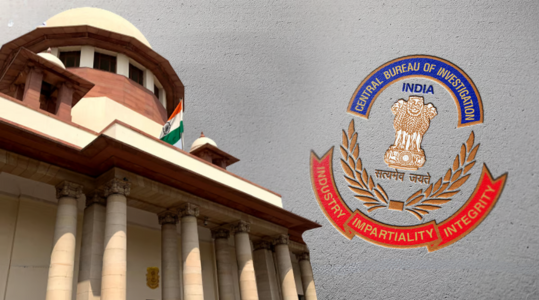On September 6, the Supreme Court directed the Central Bureau of Investigation (CBI) to investigate the death of Ranjana Diwan, the wife of a senior judicial officer [Mandakini Diwan and Another v. High Court of Chhattisgarh and Others].
A Division Bench comprising Justices Vikram Nath and PB Varale passed the order following a plea from Ranjana Diwan’s mother and brother. Ranjana, who was an Assistant District Prosecution Officer, died in 2016, two years after her marriage. Her family raised suspicions regarding her death and requested a CBI investigation into the alleged suicide, citing concerns about her husband’s influence as a judicial officer.
The Supreme Court, after considering the submissions, agreed to their request for a CBI probe. The Court emphasized the need for a thorough, fair, and independent investigation, particularly concerning the ante-mortem injuries mentioned in the case.
The Court stated, “In the present case, the aggrieved party has raised allegations of bias and undue influence on the police machinery of the State of Chhattisgarh. Coupled with the fact that the thorough, fair, and independent investigation needs to be carried out to find out the truth about the whole incident and in particular about the ante-mortem injuries. We are of the view that such a direction needs to be issued in the present case.”
Given the incident occurred in 2016, the Court directed the CBI to expedite the investigation and submit a report. The Chhattisgarh government was instructed to cooperate with the CBI and provide all necessary documents and support.
The Court also allowed the CBI to register an FIR if required and proceed with the investigation. However, if the CBI concludes that there is insufficient evidence to file a chargesheet, it can close the proceedings.
Ranjana Diwan married Manvendra Singh, an Additional District Judge, in 2014. In May 2016, her family received a call informing them that she had allegedly died by suicide. Suspicious of the circumstances surrounding her death, the family was concerned that they were not initially provided with a copy of the post-mortem report.
The police had classified the case as a suicide and prepared a closure report. Ranjana’s family then approached the Chhattisgarh High Court for a fair investigation. In May 2023, the High Court suggested they file a complaint before the Magistrate under Section 156(3) of the Criminal Procedure Code, 1973, a decision they subsequently challenged in the Supreme Court.
Before the Supreme Court, the deceased’s mother and brother expressed concerns that a fair inquiry would be compromised due to the influence held by Ranjana’s husband. They also pointed to six ante-mortem injuries mentioned in the post-mortem report that lacked explanation.
The State of Chhattisgarh argued that a fair inquiry had already been conducted and that the appellants were needlessly raising concerns. Solicitor General of India Tushar Mehta, appearing for the CBI, suggested that a high-level Special Investigation Team could be appointed or that the CBI could be directed to investigate, ensuring credibility and confidence.
Considering the circumstances, the Supreme Court directed the CBI to investigate the death.
Advocates Dinesh Jotwani, Dhawesh Pahuja, Bhargava Baisoya, Shruti Singh, Shivalika Midha, Narendra Bahadur Tiwari, Nilesh Sharma, and Saket Gogia represented the appellants.

















